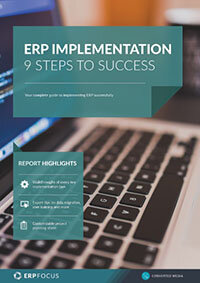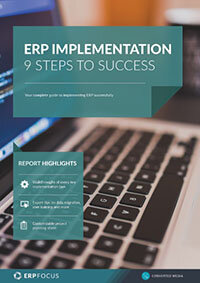Hiring an ERP Consultant
As a company, you’ve gotten to where you are by recognizing the difference between “nice to have” and “need to have”. Your staff is lean, and many of them have been with you since you started. You believe in a hands-on approach to management, whether it is on the shop floor after ERP go-live, or in the ERP support room. You firmly believe in the old cliché that a consultant is someone who asks to borrow your pocket watch, and then charges you money to let you know what time it is. However, if you’ve never learned to tell time yourself, that might be money well spent.
No company utilizes one hundred per cent of an ERP system’s possible features. The bigger the ERP system, the smaller the percentage of features that are used. If you doubt the directional accuracy of this generalization, look at the tool bars of your spreadsheet or word processing software, and take note of how few of the features you have ever actually had occasion to use. The same is true on an ERP scale. One advantage, then, of hiring an ERP consultant is to bring knowledge to your organization about what ERP features are profitable, and which are bells and whistles.
Justifying Those Fees
Another advantage of hiring an ERP consultant is that they are, by definition, temporary. They represent no long-term investment, no health or unemployment benefits, and no 401K. They seem expensive compared to your other employees, until you include benefit costs on your permanent people. If they can permanently solve or avoid two or three business problems, then it is actually pretty easy to think about them as being inexpensive. They can provide multiple data points and benchmarks about what other people have done, and they reduce the anxiety that you are not only reinventing the wheel, but that your version is square.
The major disadvantage of hiring an ERP consultant is that unless you have some sort of special contractual understanding, the consultant will not make a binding strategic decision for you. He or she will tell you the important facts, how to weight the facts, and the ramifications of each path on the decision tree, but in the end, the decision belongs to you. This is not because consultants are indecisive or squirrely, it is because most business decisions reduce to what problems you choose to live with, and ERP consultants know they aren’t going to be around to experience life after ERP implementation.
So despite any personal reservations you might have, ask yourself if it is reasonable that you have the in-house knowledge to accomplish what you are trying to accomplish with ERP. It is an absolute that a consultant should only be hired if you have a very clear and specific problem statement, and reason to believe the ERP consultant has successful experience in that problem area. But if both of those conditions are true, refusing to hire an ERP consultant may be cutting off your nose to spite your face.
Free white paper

ERP Implementation: 9 steps to success
The 9 proven steps you should follow when implementing ERP

Related articles
-

Budgeting for an ERP consultant
How much can you expect to pay out for an ERP consultant?
-

Secret KPI: Why Your ERP Implementation Team Matters More Than Software
Learn how Godlan ensures successful ERP implementation for manufacturers with proven strategies &...
-

The role of consultants in an ERP project
How can a consultant help you achieve ERP implementation success?

